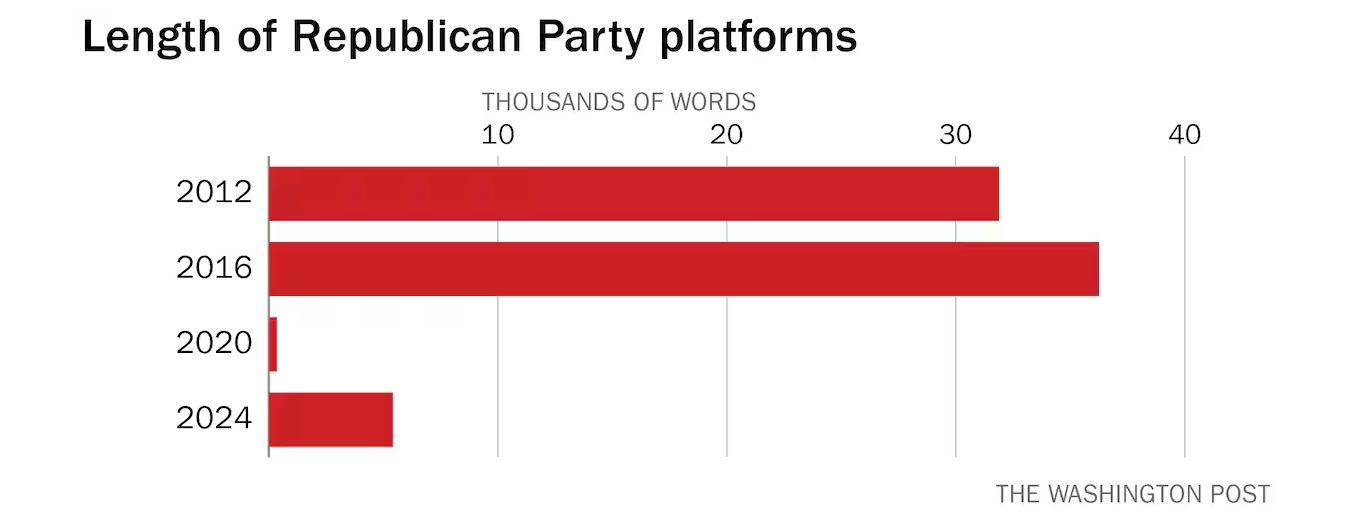Free beers. Hoots and hollers, groans and grumbles. A sea of jerseys emblazoned with a team name.
The vibes were tribal — exhilarating in a way that rivals our coveted Duke-UNC basketball game. About a presidential debate, no less. On my apolitical campus? I could hardly believe it.
The candidates only fed our rowdiness. Jabs about rally sizes turned into ravings about immigrants and tussles over reproduction, before pit-stopping at the Big Lie, twisting on foreign wars, and ending at pitches to rebuild a failed nation.
It was a rhetorical sports bar brawl, blaring on national television for millions of Americans to inform the electoral choice of a lifetime.
Donald Trump plays grievances in spades. I am your retribution.
Kamala Harris embodies the politics of joy. Hope becomes her.
But conspicuously missing is the pragmatism of it all. One candidate has “concepts of a plan” for American health insurance, and boiled his platform down to two things: walls and good elections. Trump said he would show the facts on vote-stealing, only to produce no evidence. When commenting on Israel, Afghanistan Ukraine, he never described how he’d end each conflict; only that they would’ve never happened on his watch. Well, they’re happening. And no amount of calls to Abdul are going to fix them.
The other dodged her shapeshifting record on policy, promising to explain flip-flops on fracking and the border only to pivot to her middle class upbringing instead. Kamala Harris claims her values haven’t changed, but their expression certainly has — no amount of political savvy can cover her evasiveness. The only time she showed nerves was explaining sparse details for her “opportunity economy.” Our future President should be confident in her ability to save the American Dream… at least, if she has a plan to do it, that is.
Amid the platitudes, moderator Lindsey Davis outright asked: “Why should voters trust you?”
The candidates answered not with a strategy, but with a narrative.
Our modern politics allows a politician’s persona to overshadow their actual policy agenda. Look below at the Washington Post’s graphic detailing the length of the Republican Party’s national platform:
The Post characterizes the Right’s diminishing focus on policy as a uniquely MAGA trend. Yet, the final Master Platform of the Democratic Party for 2024 is an outdated relic of the vanquished Biden campaign. It mentions President Biden 237 times. Vice President Harris comes in at a measly 32.
Her own website remarkably details her entire policy platform on a single webpage; good, perhaps, for a quick glance. Bad, perhaps, for a governing springboard.
Instead of debating concrete visions for America’s future, our Presidential candidates were busy building an image, both with words and facial expressions.
Kamala, the prosecutor. Trump, the perpetrator. Kamala, the crooked. Trump, the victim. Kamala, brat. Trump, weird. Comrade Kamala. Felon Trump.
Trust, under this political calculus, is not earned by credibility; it is earned instead through emblematility.
A politician can serve as a stand-in for a deep story, a sociological concept popularized by Arlie Russell Hochschild’s Strangers in Their Own Land. Deep stories toss aside facts and moral precepts, relying instead on a felt truth. They’re narratives that good politicians capitalize on. Hochschild noted in 2016, that Donald Trump deeply resonated with conservatives who felt like they’d waited in line for their American Dream, only to be cut again and again. It didn’t matter what the Obama administration’s economic policies were or what Hillary Clinton promised to rural voters, if they simply didn’t believe that she understood their deep story.
Today, Kamala Harris symbolizes progressing towards a more equal American future. Donald Trump symbolizes returning a more glorious American past.
We all have deep stories that make us connect more with one or the other (even if we’re a double hater, and shun both). The insidious part of a deep story is that its existence asks us to abandon policy preferences, thorough background checks, and critical thinking in favor of the candidate who understands us.
Trust is complicated. Sometimes, it’s less about what you do and more about who you are. And it doesn’t have to be that way. Acknowledging this is the first step in rewiring our political ecosystem.
This debate gave us so much. We got vibes. We have Twitter montages and sick burns. And, we can anoint a clear winner. But, regardless, we deserve answers.
Vibes can’t drive down rent or drive up wages. Vibes won’t end the slaughter of Gaza or rescue the hostages. Vibes aren’t rescuing our crumbling immigration system. How can we trust these two candidates to hold up their end of the electoral bargain, when they won’t talk about the terms of the contract?





"Trust, under this political calculus, is not earned by credibility; it is earned instead through emblematility." is such a good way to describe the current political culture of our elections. Love your writing as always Katelyn!!